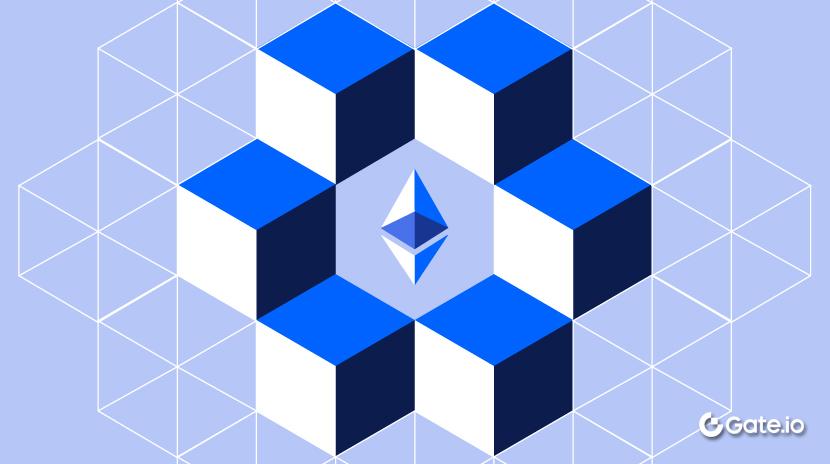экономический токен

Что такое экономический токен (EconomicToken)?
Экономический токен — это цифровой актив, созданный для стимулирования взаимодействия и обмена ценностями внутри сети.
Токен выпускается и обращается на блокчейне, связывая активность пользователей с общей стоимостью экосистемы. Основные применения включают оплату on-chain комиссий (Gas), участие в голосовании по управлению, стейкинг для обеспечения безопасности сети и получения вознаграждений, а также использование в качестве инструмента мотивации и расчетов. В отличие от «виртуальных баллов», экономические токены обычно свободно торгуются на биржах, а их стоимость зависит от спроса и предложения.
Экономические токены — это не отдельная категория, а совокупность различных форм: utility tokens, governance tokens, incentive tokens и stablecoins. Примеры: ETH используется для оплаты Gas и расчетов; UNI — для голосования и стимулирования экосистемы; USDT — как стабильное платежное средство; SOL — одновременно токен комиссии и актив экосистемы.
Почему важно разбираться в экономических токенах?
Знание экономических токенов помогает оценить устойчивость и ценность Web3-проекта.
Во-первых, токены определяют ваши возможности: можно оплачивать комиссии, участвовать в управлении или стейкать ради вознаграждений — это напрямую влияет на пользовательский опыт и потенциальную доходность.
Во-вторых, токены определяют степень риска: такие параметры, как общий объем выпуска, график разблокировки, инфляционный механизм, программы обратного выкупа и сжигания, влияют на волатильность и стабильность доходности. Например, если за последние шесть месяцев проект разблокировал значительный объем токенов без соответствующего спроса, давление на цену увеличивается.
Наконец, токены выступают координаторами экосистемы: разработчики, пользователи, поставщики ликвидности и участники управления связаны единым ценностным активом. Понимание токена — это понимание механизма привлечения и удержания ценности в проекте.
Как работают экономические токены?
Они функционируют по замкнутому циклу «предложение — полезность — спрос».
Сторона предложения: проекты устанавливают общий выпуск или правила инфляции и определяют график разблокировки. Разблокировка — это выпуск ранее не обращавшихся токенов на рынок ежемесячно или ежеквартально. Без компенсирующих механизмов (например, сжигания или расширения полезности) рост чистого предложения снижает стоимость токенов у держателей.
Сторона полезности: токены должны иметь реальные применения. К типичным относятся: оплата on-chain комиссий (Gas), участие в голосовании по управлению (определение параметров и распределение фондов), стейкинг (блокировка токенов для безопасности сети и получения вознаграждений), а также расходование внутри приложений (например, покупки в GameFi или минтинг NFT). Чем разнообразнее и значимее полезности, тем стабильнее спрос.
Сторона спроса: реальные пользователи и разработчики приобретают или держат токены ради функций и вознаграждений. Например, для использования Ethereum требуется ETH для Gas; для получения наград или голосования необходим governance token. Ликвидность на вторичном рынке и внешний капитал также влияют на краткосрочный спрос.
Пример замкнутого цикла: социальное dApp вознаграждает публикации и модерацию токенами; пользователи расходуют токены на премиальные функции; часть токенов сжигается или отправляется в казначейство; держатели governance голосуют за изменение ставок вознаграждения. Так формируется устойчивый цикл выпуска, потребления, рециркуляции и управления.
Как экономические токены функционируют в криптоиндустрии?
Экономические токены выполняют функции платежа, управления, стейкинга и расчетов в разных сценариях.
В публичных блокчейнах они применяются для оплаты Gas и выступают активами экосистемы. Примеры: ETH, SOL, AVAX — пользователи оплачивают комиссии за каждую транзакцию этими токенами, формируя базовый спрос.
В DeFi токены часто используются для стейкинга или ликвидити-майнинга, где вознаграждения выплачиваются в том же или связанном токене. Протоколы нуждаются в капитале и мотивации — токены обеспечивают гибкие стимулы. Например, депозит стейблкоинов в кредитном протоколе может приносить governance token, который затем используется для голосования по ставкам или распределению наград.
На биржах экономические токены служат торговыми парами и инструментом для снижения комиссий. На Gate пользователи могут: торговать токенами на спотовом рынке; участвовать в Launchpad для ранней покупки новых токенов; стейкать или подписываться на продукты с доходностью; использовать платформенные токены для компенсации комиссий во время событий. Эти сценарии объединяют участие, заработок и расходование.
На уровне приложений: в GameFi токены используются для внутриигровых покупок, апгрейдов и наград; на NFT маркетплейсах — для оплаты минтинга и роялти; стейблкоины USDT или USDC применяются для платежей и хеджирования благодаря привязке к USD и низкой волатильности.
Как приобрести экономические токены?
На примере Gate процесс для новичка прост:
Шаг 1: Зарегистрируйтесь и пройдите верификацию личности. Это повысит лимиты и уровень безопасности, обеспечит стабильные операции с фиатом и криптовалютой.
Шаг 2: Пополните баланс или внесите средства. Можно внести фиат или перевести с другого кошелька. Перед переводом проверяйте совместимость сетей и точность адреса, чтобы избежать потери активов из-за несовпадения сетей.
Шаг 3: Выберите торговую пару и разместите ордер. В спотовом рынке Gate найдите нужный токен (например, ETH/USDT, UNI/USDT) и разместите лимитный или рыночный ордер согласно плану. Новичкам рекомендуется начинать с небольших сумм и несколькими партиями для снижения волатильности.
Шаг 4: Безопасное хранение и управление полезностью. Для краткосрочной торговли токены можно держать на бирже; для долгосрочного хранения — перевести в собственный кошелек. Если планируете участвовать в управлении или взаимодействовать on-chain, оставьте часть токенов для оплаты Gas; для доходных продуктов или стейкинга изучите правила и ограничения на вывод.
Шаг 5: Следите за токеномикой и графиком разблокировки. Посещайте официальный сайт проекта или объявления, чтобы отслеживать сроки разблокировки, планы по сжиганию, использование средств и governance-предложения — все это влияет на средне- и долгосрочные результаты.
Какие актуальные тренды и данные по экономическим токенам?
За последний год структура предложения и спроса изменилась.
Разблокировки и предложение: По данным TokenUnlocks и раскрытиям проектов за 3 квартал 2025 года, крупные и средние проекты ежемесячно разблокируют токены на десятки миллиардов долларов. Средний ежемесячный объем разблокировки за год составляет $5–8 млрд — распределение стало более равномерным по сравнению с 2024 годом. Причина — проекты 2021–2022 годов выходят на поздние этапы выпуска, а линейные разблокировки заменяют концентрированные cliff-выпуски.
Предложение и доля стейблкоинов: Согласно отчетам CoinGecko и Messari за 3 квартал 2025 года, общий объем стейблкоинов немного вырос за последние шесть месяцев. USDT и USDC стабильно занимают более 80% рынка стейблкоинов. Высокая доля отражает сильный спрос на расчеты и платежи, а также обеспечивает ликвидность для других токенов и рискованных активов.
On-chain комиссии и активность: В Ethereum и ряде высокопроизводительных блокчейнов в этом году наблюдается рост активности. Комиссии резко растут в периоды пиков, но снижаются в периоды затишья благодаря технологиям сжатия и масштабирования. Для экономических токенов увеличение расходов на Gas усиливает жесткий спрос, но может стимулировать переход пользователей на Layer 2 с низкими комиссиями.
Стейкинг и участие в управлении: Доля стейкинга в Ethereum весь год держится в диапазоне от высоких 20% до низких 30% (по данным разных источников). Новые проекты часто используют стратегии «стейкинг — баллы — airdrop» для роста. Это увеличивает «спрос на заблокированные токены», но недостаточная полезность может привести к давлению на продажу после завершения наград.
Структура торговли: По данным Kaiko и CoinGecko (3 квартал 2025 года) доля децентрализованной торговли немного выросла по сравнению с 2024 годом, особенно в периоды горячих запусков и airdrop. Для экономических токенов это означает рост нативной on-chain торговли и активности ликвидности.
Примечание: источники данных могут отличаться по методологии — приведено по публичным отчетам. Для точного отслеживания используйте актуальные объявления конкретных проектов.
В чем отличие экономических токенов от utility tokens?
Понятия связаны, но не совпадают: экономические токены — более широкая категория, включающая utility tokens как одну из форм.
Экономические токены — это «ценностные активы для стимулирования сетевого сотрудничества», охватывающие функции платежа, управления, стейкинга, наград и др. Utility tokens предназначены для конкретных функций внутри приложения — например, оплаты комиссий или разблокировки специальных сервисов и прав.
Примеры: ETH — одновременно экономический токен (расчеты/ценность экосистемы) и utility token (оплата Gas); UNI — координатор управления и стимулов как экономический токен, а его функциональное применение — голосование и награды; USDT — платеж и расчеты как экономический токен, а также utility-функции в отдельных приложениях.
К другим типам относятся governance tokens (дают право голоса без выплаты дивидендов) и stablecoins (используются для платежей/хеджирования, но не всегда для управления). Понимание различий помогает выбирать стратегии участия и оценивать уровень риска.
Данный материал не является инвестиционной рекомендацией. Перед участием в проекте изучайте токеномику, график разблокировки и реальные применения токена.
Связанные термины
- Токеномика: дизайн предложения, распределения и механизмов стимулов токена для регулирования поведения участников экосистемы.
- Инфляция: увеличение предложения токенов, приводящее к снижению стоимости каждого токена.
- Вознаграждения за стейкинг: дополнительные токены, выплачиваемые держателям за блокировку активов для участия в консенсусе или управлении сетью.
- Liquidity mining: предоставление ликвидности на децентрализованных биржах в обмен на токеновые стимулы.
- Голосование по управлению: механизм, при котором держатели токенов используют право голоса для принятия решений по политике проекта или изменению параметров.
FAQ
Что такое токеномика?
Токеномика — это проектирование и управление экономическими правилами и механизмами стимулов криптотокена. Включает общий объем предложения, методы распределения, графики выпуска и модели вознаграждения держателей. Грамотная токеномика способствует долгосрочному росту проекта; неудачный дизайн может привести к резкому падению цены.
В чем отличие экономических токенов от governance tokens?
Экономические токены применяются для стимулов, платежей и хранения ценности — держатели получают доходность через использование. Governance tokens дают право голоса по ключевым решениям проекта. Некоторые проекты выпускают оба типа токенов, другие объединяют обе функции в одном токене.
Как новичку оценить качество экономического токена?
Обратите внимание на три аспекта: сбалансированность распределения токенов (высокая концентрация увеличивает риск обвала цены); график разблокировки (крупные разблокировки влияют на цену); проанализируйте, насколько механизмы стимулов соответствуют интересам держателей. Крупные биржи, такие как Gate, предоставляют прозрачные данные об обращении токенов.
Почему некоторые экономические токены теряют стоимость?
Три основные причины: крупные ранние разблокировки увеличивают предложение; отсутствие реальной полезности завышает ценность; неэффективные механизмы стимулов не привлекают реальных пользователей. Всегда изучайте долгосрочную поддержку ценности проекта перед инвестированием.
Как купить и торговать экономическими токенами на Gate?
Найдите название токена или адрес контракта на Gate, выберите торговую пару и разместите ордер. Новичкам стоит начинать с небольших тестовых сумм, чтобы изучить ликвидность и волатильность цены. Всегда проверяйте адрес контракта, чтобы избежать подделок, и устанавливайте стоп-лосс для защиты средств.
Источники и дополнительная информация
- https://en.wikipedia.org/wiki/Token_economy
- https://www.ebsco.com/research-starters/psychology/token-economy
- https://www.mayinstitute.org/news/acl/asd-and-dd-child-focused/use-token-economies-to-provide-positive-reinforcement-and-modify-behavior/
- https://www.pacificautism.org/what-is-a-token-economy-system/
- https://www.oreilly.com/library/view/what-is-the/9781492072973/ch01.html
- https://walton.uark.edu/insights/posts/the-token-economy-and-the-future-of-individual-empowerment.php
- https://coinmarketcap.com/academy/glossary/token-economy
Похожие статьи

Что такое Нейро? Все, что вам нужно знать о NEIROETH в 2025 году

Что такое Galxe (ранее Project Galaxy)? Все, что вам нужно знать о GAL 2025
